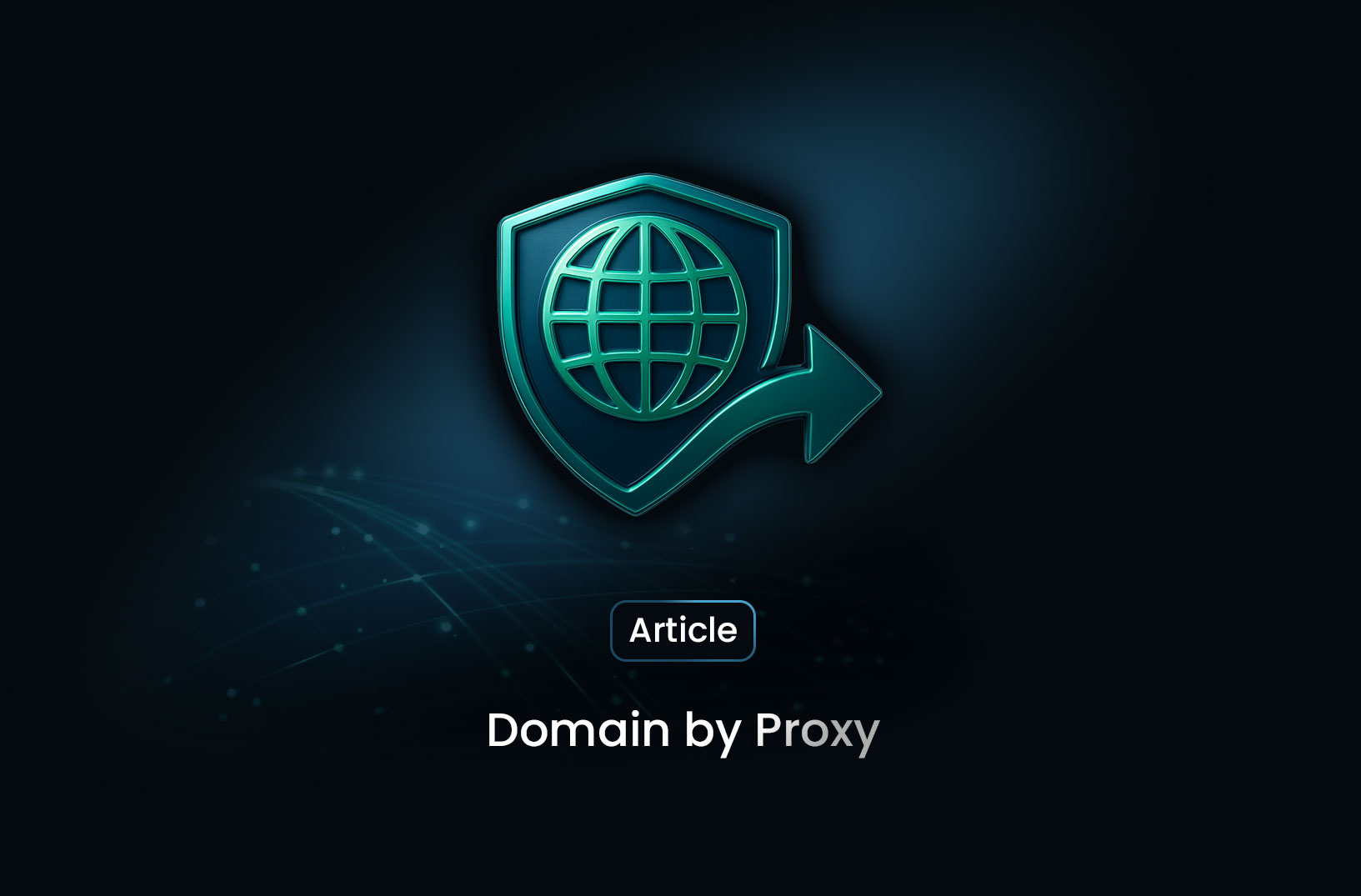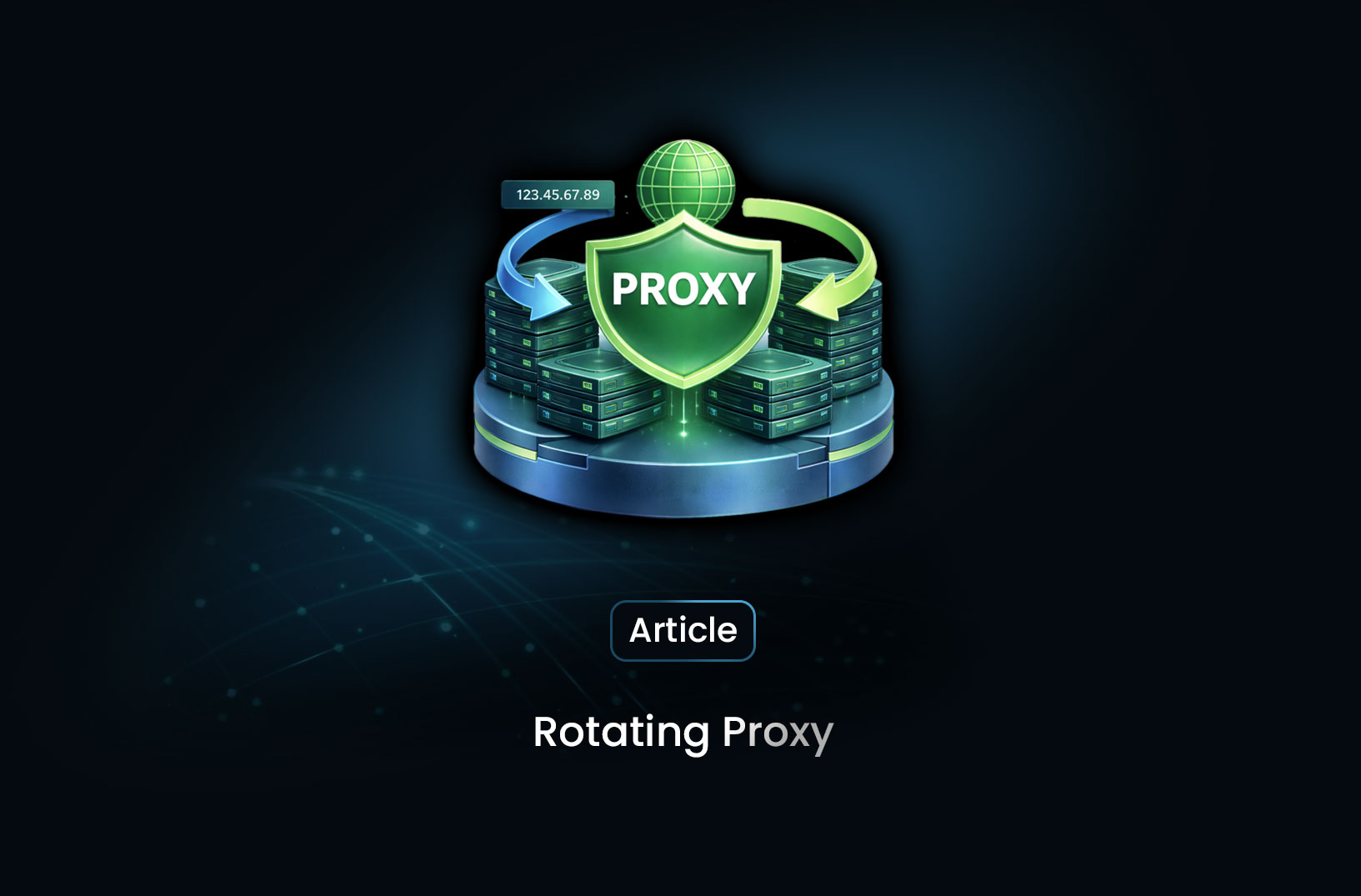
Why You Should Consider Using Domain by Proxy for Your Website
ArticleDiscover how Domain by Proxy keeps your identity private online. Understand its purpose, pros and cons, and why it’s essential for secure domain ownership.
What Is a “Domain by Proxy” Service?
A “domain by proxy” service (also known as WHOIS privacy or proxy registration) is a service offered by domain registrars or third-party providers in which the domain registrant’s personal contact information (name, address, phone, email) is hidden from the public WHOIS or RDAP listing. Instead, the service provider’s contact details appear in the public record. The actual domain owner retains control of the domain but remains concealed. For example, with Domains By Proxy, LLC, when a user opts into the privacy service, the “Registrant” field in WHOIS shows “Domains By Proxy, LLC” rather than the individual’s name.
How It Works
- When registering a domain (or enabling privacy on an existing domain), the domain owner selects the privacy or proxy option via their registrar.
- The proxy service becomes the official “Registrant” of record in the domain registration database. In many cases, the service acts as a legal entity that holds the registration rights on behalf of the owner.
- The public WHOIS record displays the proxy’s contact details instead of the owner’s personal info.
- Emails or communications sent to the registered contact may be forwarded by the proxy service to the actual owner (depending on service policy).
- In legitimate uses, this helps reduce spam, shield the owner from unwanted contact, and comply with privacy laws. In some cases, the proxy service will reveal the owner’s identity if required by court order or policy breach.
Benefits of Using Domain by Proxy
- Privacy Protection: It hides your personal details from public WHOIS listings, reducing exposure to spam, identity theft, or unwanted solicitations.
- Reduced Spam & Unsolicited Contact: Because your actual email/phone isn’t published, you may receive fewer marketing or scam calls.
- Compliance & Safety: For individuals or small businesses, using a proxy service helps guard against exposure of sensitive address or personal contact info in an era of increasing privacy concerns.
- Brand/Domain Strategy Flexibility: You can register domains without publicly tying them to your name or business, which may be useful for future projects, test domains, or secondary sites.
Risks, Limitations & Considerations
- Legal/Trademark Risk & Responsibility: Even when a proxy is used, the ultimate ownership and liability still lie with the underlying owner. If a domain infringes on trademark rights, the proxy cannot fully shield the owner from legal action.
- Perceived Trust Issues: Some online users or services may view a domain registered via a proxy service with less trust, especially if it conceals contact information that might be expected for business transparency.
- Removal of Access to Owner Info: When you need to contact the domain owner (for business inquiry, trademark issue, etc.), proxy registration can make it harder to identify or reach them. Some domain disputes or certificate issuers reject domains with hidden owner details unless validated.
- Misuse by Bad Actors: Some unscrupulous parties may use domain-by-proxy services to hide ownership of malicious or fraudulent websites. Studies show a correlation between proxy-registered domains and abuse.
- Cost & Complexity: While many registrars offer proxy services cheaply, there may still be additional cost or steps (renewals, access requests) compared to public registration.
- Service Dependence: If the proxy provider discontinues service or changes terms, the protection could degrade.
When & How to Use Domain by Proxy
When to Use:
- If you are an individual, small business, or entrepreneur registering a domain and wish to protect your personal data.
- If you plan to register multiple domains (for future use) and want to keep identity hidden.
- If you operate under privacy-sensitive conditions (e.g., freelance work, side project, personal brand) and don’t want direct contact.
How to Use:
- Choose a registrar that offers privacy/proxy service (or enable the feature during domain registration).
- Activate or enable the “Domain Privacy / Proxy” option for your domain.
- Verify the forwarding/communication option (how you will receive emails sent to the proxy address).
- Keep your account credentials secure and monitor your domain’s status—privacy doesn’t replace domain maintenance.
- If you need to demonstrate ownership (for SSL certificate issuance, legal proceedings, etc.), be prepared to supply proof or use registrar validation.
FAQs
- Is the domain still mine if a proxy is used? Yes — you retain control and usage rights, but the registrant-of-record may appear as the proxy service. According to the service agreement, you license the registration via the proxy.
- Will using a proxy hide me from law enforcement? No — many proxy services will comply with legal demands (court orders, IP infringement claims) and reveal underlying information when required.
- Does using a proxy affect SSL certificate issuance? It can. Some certificate authorities require proof of domain ownership and may flag hidden registrant data.
- Is it always safe to rely on proxy registration? It’s safe for privacy in many cases, but you should still manage your domain properly, renew on time, and understand the terms of your proxy provider.
Conclusion
A “domain by proxy” service offers a viable and practical way to protect your personal contact information, reduce exposure to unsolicited contact, and maintain flexibility in domain ownership. However, it is not a magic shield—responsible domain management, legal awareness, and understanding of proxy limitations are essential. If you’re registering a domain and privacy matters to you, a proxy registration deserves consideration—but weigh the trade-offs and select a reputable service accordingly.
Find more insights here

6 Best Rotating Proxy Providers for Scraping
Discover the 6 best rotating proxy providers for scraping in 2026, with pricing, pool quality, and s...
.jpg)
How to Handle Timeouts in Python Requests
Learn how to handle timeouts in Python requests properly, including connect vs read timeouts, retrie...
.jpg)
What Is a Search Engine Rankings API and How It Powers Modern SEO
Learn what a Search Engine Rankings API is, how it works, key features, real use cases, and how it p...
